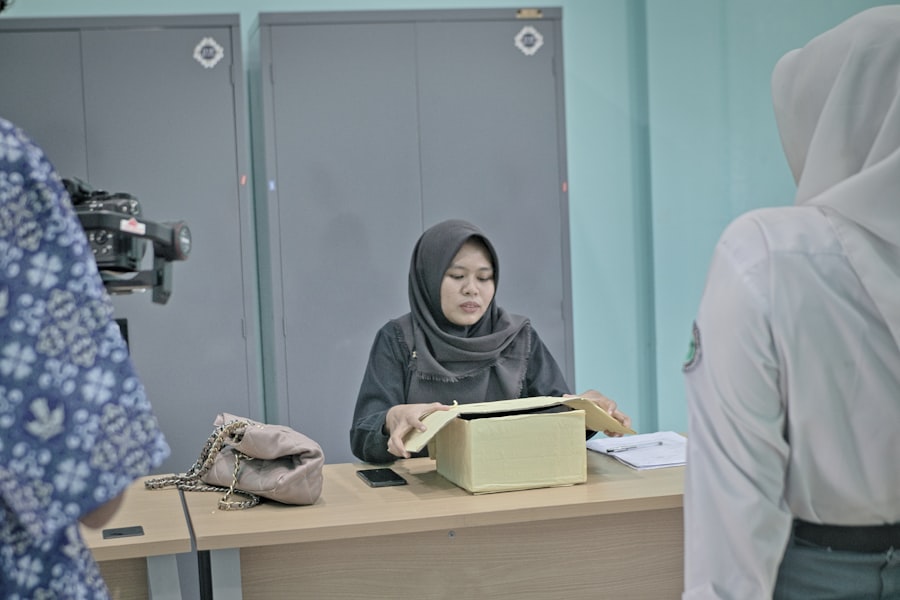Research coordinators serve as the backbone of clinical trials, acting as the vital link between various stakeholders, including investigators, participants, and regulatory bodies. Their responsibilities encompass a wide range of tasks that are essential for the successful execution of clinical studies. From the initial planning stages to the final reporting of results, research coordinators ensure that every aspect of the trial is meticulously managed.
They are often involved in developing study protocols, recruiting participants, and overseeing the day-to-day operations of the trial. This multifaceted role requires a deep understanding of both the scientific and administrative components of clinical research. In addition to their operational duties, research coordinators play a crucial role in maintaining the integrity of the trial.
They are responsible for ensuring that all procedures are conducted according to the established protocols and that ethical standards are upheld. This includes obtaining informed consent from participants, monitoring their safety throughout the study, and ensuring that data is collected accurately and consistently. The research coordinator’s ability to navigate complex regulatory environments and adhere to Good Clinical Practice (GCP) guidelines is paramount in safeguarding the rights and well-being of participants while also ensuring the validity of the trial results.
Key Takeaways
- Research coordinators are essential for managing clinical trial operations and ensuring study integrity.
- Effective communication and organization are critical for smooth trial execution and participant engagement.
- Building strong relationships with participants enhances retention and compliance throughout the study.
- Adhering to protocols and regulatory requirements ensures ethical standards and data validity.
- Continuous training and professional development support coordinators in overcoming challenges and improving trial outcomes.
Importance of Effective Communication and Organization
Effective communication is a cornerstone of successful clinical trials, and research coordinators must excel in this area to facilitate collaboration among diverse teams. They serve as the primary point of contact for investigators, sponsors, and participants, which necessitates clear and concise communication skills. Coordinators must convey complex information in an understandable manner, whether they are explaining study protocols to participants or discussing trial progress with investigators.
This ability to communicate effectively helps to build trust and rapport among all parties involved, which is essential for participant retention and overall trial success. Organization is equally critical in the role of a research coordinator. Clinical trials often involve numerous moving parts, including participant recruitment, data collection, and compliance with regulatory requirements.
Coordinators must develop robust organizational systems to manage these tasks efficiently. This may involve creating detailed timelines, maintaining comprehensive documentation, and utilizing project management tools to track progress. A well-organized approach not only enhances the efficiency of trial operations but also minimizes the risk of errors that could compromise the study’s integrity.
Building and Maintaining Relationships with Participants

Building strong relationships with participants is a fundamental aspect of a research coordinator’s role. Participants are not merely subjects; they are individuals who contribute to the advancement of medical knowledge. Research coordinators must approach their interactions with empathy and respect, recognizing the importance of participant engagement in the success of a trial.
This involves actively listening to participants’ concerns, providing them with timely updates about the study, and ensuring they feel valued throughout their involvement. Maintaining these relationships over time is equally important. Research coordinators often serve as a consistent point of contact for participants throughout the duration of a trial, which can span months or even years.
Regular communication helps to foster a sense of community and belonging among participants, which can enhance their commitment to the study. Coordinators may organize informational sessions or social events to keep participants engaged and informed about the trial’s progress. By prioritizing participant relationships, research coordinators not only improve retention rates but also contribute to a more positive overall experience for those involved in clinical research.
Ensuring Adherence to Protocol and Regulatory Compliance
| Metric | Description | Target Value | Current Status | Frequency of Measurement |
|---|---|---|---|---|
| Protocol Deviation Rate | Percentage of study activities not conducted according to the approved protocol | < 2% | 1.5% | Monthly |
| Regulatory Submission Timeliness | Percentage of regulatory documents submitted on or before deadlines | 100% | 98% | Quarterly |
| Audit Findings | Number of non-compliance issues identified during internal or external audits | 0 | 2 | Annually |
| Training Completion Rate | Percentage of staff completing required compliance and protocol training | 100% | 95% | Monthly |
| Informed Consent Compliance | Percentage of participants with properly documented informed consent | 100% | 99.2% | Monthly |
| Corrective and Preventive Actions (CAPA) Closure Rate | Percentage of CAPA items closed within the agreed timeframe | 95% | 90% | Monthly |
Adherence to study protocols and regulatory compliance is a critical responsibility for research coordinators. Clinical trials are governed by strict guidelines designed to protect participants and ensure the reliability of data collected. Research coordinators must have an in-depth understanding of these protocols and regulations, including those set forth by institutional review boards (IRBs) and regulatory agencies such as the Food and Drug Administration (FDA).
They are tasked with ensuring that all trial activities align with these standards, which requires meticulous attention to detail. To achieve compliance, research coordinators often conduct regular audits and reviews of study procedures. This proactive approach allows them to identify potential issues before they escalate into significant problems.
For instance, if a coordinator notices discrepancies in data collection or participant records, they can take immediate corrective action to address these issues. Additionally, coordinators must ensure that all staff members involved in the trial are adequately trained on protocol requirements and compliance measures. By fostering a culture of accountability and vigilance regarding adherence to protocols, research coordinators play a pivotal role in maintaining the integrity of clinical trials.
Managing Data Collection and Documentation
Data collection and documentation are at the heart of clinical trials, making it imperative for research coordinators to manage these processes effectively. Coordinators oversee the collection of data from various sources, including participant assessments, laboratory results, and clinical observations. They must ensure that data is collected consistently and accurately, as any discrepancies can compromise the validity of study findings.
This often involves developing standardized data collection forms and training staff on proper data entry techniques. In addition to collecting data, research coordinators are responsible for maintaining comprehensive documentation throughout the trial. This includes not only participant records but also regulatory documents, correspondence with sponsors, and reports submitted to IRBs.
Proper documentation is essential for demonstrating compliance with regulatory requirements and for facilitating audits or inspections by oversight bodies. Coordinators must implement robust systems for organizing and storing this information securely while ensuring that it remains easily accessible when needed. By prioritizing meticulous data management practices, research coordinators contribute significantly to the overall success and credibility of clinical trials.
Problem-Solving and Troubleshooting

The dynamic nature of clinical trials often presents unexpected challenges that require research coordinators to be adept problem-solvers. Issues may arise at any stage of a trial, from participant recruitment difficulties to unforeseen adverse events during the study. Coordinators must be prepared to think critically and develop effective solutions quickly to minimize disruptions to trial operations.
This may involve collaborating with investigators to adjust recruitment strategies or implementing new safety protocols in response to emerging concerns. Moreover, research coordinators must possess strong analytical skills to assess situations objectively and determine the best course of action. For example, if a coordinator identifies a trend in participant dropouts, they may need to investigate potential causes by reviewing feedback from participants or analyzing demographic data.
By employing a systematic approach to problem-solving, coordinators can address issues proactively rather than reactively, ultimately enhancing the efficiency and effectiveness of clinical trials.
Supporting Investigator and Site Staff
Research coordinators play an essential role in supporting investigators and site staff throughout the clinical trial process. They act as facilitators who help streamline communication between various team members, ensuring that everyone is aligned on study objectives and responsibilities. This support is particularly crucial during complex trials that involve multiple sites or interdisciplinary teams.
Coordinators often organize regular meetings or updates to keep all stakeholders informed about progress and any changes in protocol or procedures. In addition to facilitating communication, research coordinators provide practical support by assisting with administrative tasks such as scheduling appointments, managing budgets, and coordinating logistics for site visits or monitoring activities. Their organizational skills enable investigators and site staff to focus on their primary responsibilities without being bogged down by administrative burdens.
By fostering a collaborative environment where all team members feel supported, research coordinators contribute significantly to the overall success of clinical trials.
Strategies for Success: Training and Professional Development
To excel in their roles, research coordinators must engage in continuous training and professional development. The field of clinical research is constantly evolving due to advancements in technology, changes in regulations, and emerging best practices. Coordinators should seek out opportunities for ongoing education through workshops, conferences, or online courses that focus on relevant topics such as GCP guidelines, data management techniques, or participant engagement strategies.
Additionally, mentorship programs can be invaluable for research coordinators looking to advance their careers. By connecting with experienced professionals in the field, coordinators can gain insights into effective practices and learn from real-world experiences. Networking within professional organizations dedicated to clinical research can also provide access to resources and support systems that enhance career growth.
By prioritizing training and professional development, research coordinators not only improve their own skills but also contribute to elevating the standards of clinical research as a whole.




